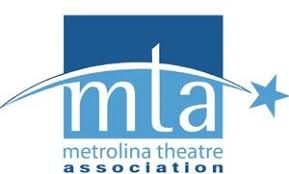Let's Talk About Stage Managers
The Center of the Practical Process of Theatre
Every play that is produced has at least one stage manager, sometimes a stage manager with an assistant or two. But what does a stage manager really do?
In a nutshell, the stage manager is the workhorse of the production, and holds most of the responsibility for making sure a show runs smoothly and professionally. Without a stage manager, the whole operation would likely fall into chaos, and much communication would likely break down. This all-important position is the anchor, the center, the heartbeat of all that happens in rehearsal and backstage. If the creative director is the center of the creative process, the stage manager is the center of the practical process.
In the beginning of the rehearsal process, the stage manager sets up all modes of communication for the company and ensures that all design and planning personnel are on the same page with the director. S/he facilitates auditions, fulfills the directives of the director, and prepares all needed materials for auditions and beginning rehearsals. A great stage manager gets the ball rolling in a positive, smooth, and efficient way.
As rehearsals begin, the stage manager compiles a contact list, disseminates rehearsal schedules, and secures rehearsal conflicts from the actors. When actors report to rehearsal, they check in with the stage manager, and the stage manager contacts anyone not attending. After rehearsal begins, the stage manager manages time, records stage movement and rehearsal notes, and attends to the director’s needs. When rehearsals end, the stage manager secures the building and sends out a rehearsal report to all those who need it to prepare for the next rehearsal.
For the backstage work, the stage manager coordinates and plans all changes of set, use and storage of props, and helps actors with anything they might need. In most productions, there is a dedicated prop table on both sides of the stage with each prop taped off and marked, and closely monitored by…you guessed it…the stage manager.
Whew! That sounds like a huge job! My friend, that is just for rehearsals!! Let’s talk now about: The performances.
When opening night comes, it’s the stage manager who now runs the show. Often, the director has now gone on to other projects! Our all-important stage manager now makes sure all needed personnel are present for the performance, communicates with the house personnel on lobby and auditorium issues, makes sure all props and set pieces are in place and functional, and is available for all needed things pre-show. S/he calls times to the actors and crew leading to curtain time, ending with the ever-famous word: Places!!
After ‘Places’ is called, the stage manager runs the show. Typically, the stage manager is on a head-set with the light and sound board operators, and s/he calls all of the technical cues for the performances. S/he is backstage at all times to handle any and all emergencies that might arise, and is also the time-keeper and facilitator for smooth transitions into intermission and back into the second act of the show.
After the performance, the stage manager cleans, re-sets for the next performance, and handles any other issues that arose that evening. And, at the end of the night, the stage manager is the last person out of the building, turning on the ghost light, and securing the space for next time.
An exhausting job? Absolutely. But so incredibly vital to the success of the production. The stage manager may never see the ‘limelight’--but s/he shares the applause and accolades with all those who rely on him/her to launch the production. It truly takes a special person to be amazing in this role–OCT has been VERY fortunate to have enjoyed MANY “stage manager extraordinaires” during our rich history. We all give you–our anchors–a standing ovation!!
Share this Post
Recent Articles











